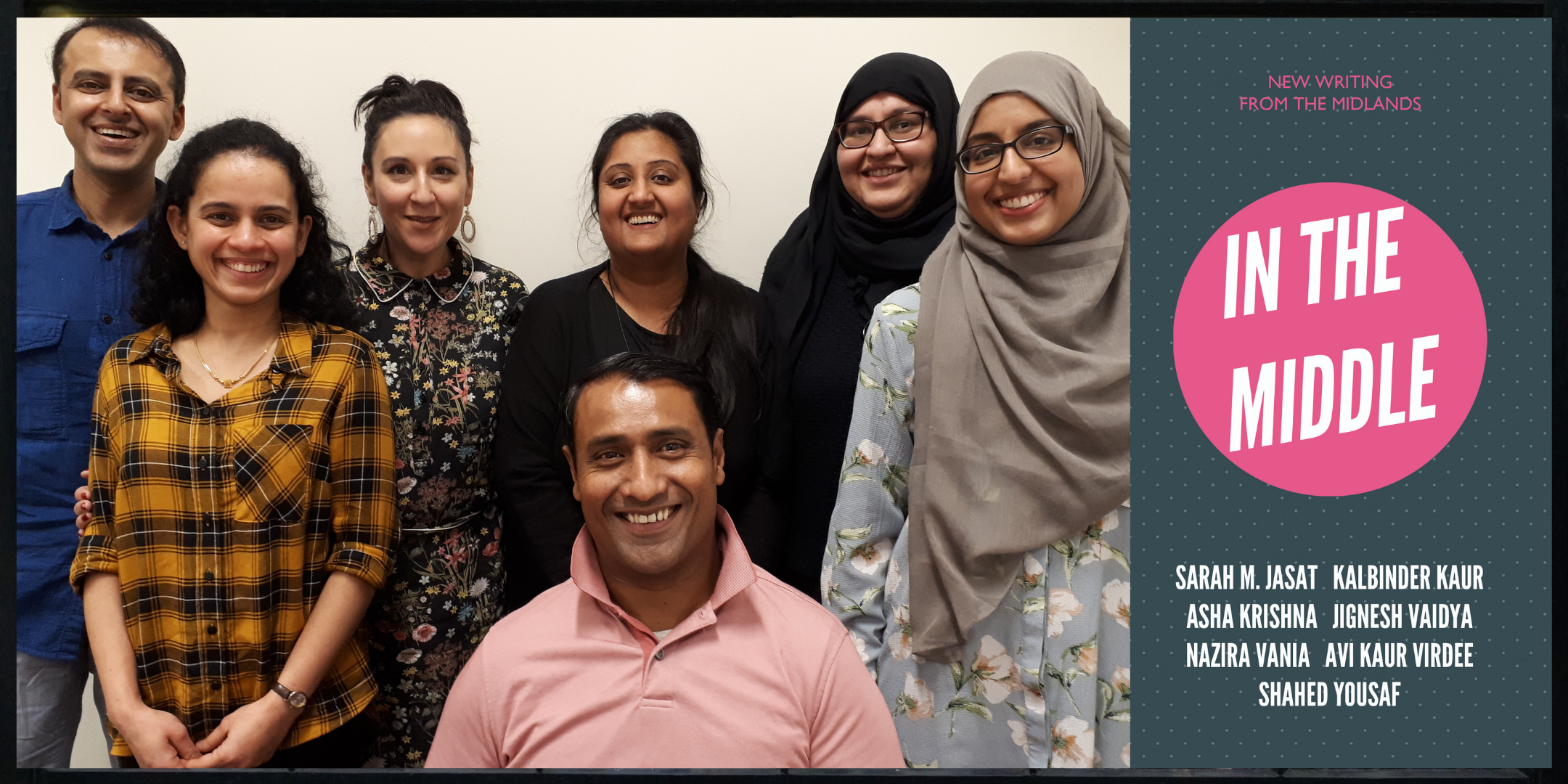
I set up the Middle Way Mentoring Project, a two-year professional development programme for Black, Asian, Minority Ethnic writers from the Midlands, to help early-career writers take the next step in their writing career.
The idea behind the project was to bring together new voices with established authors in a space that focused on craft and process rather than output. It came after many false starts with my own writing and meeting nearly-there writers through my work at The Asian Writer and Dahlia Books.
Having worked at a grassroots level one thing I was convinced of was that writing talent was everywhere but opportunity was not. Why did some writers make it and others give up? I began thinking about what writers needed to develop their craft and take them from merely beginning to having an established writing practice.
One thing which struck me was that writers from diverse cultural backgrounds did not have access to wider networks. Moreover, writers in the Midlands who went on to be published did not enjoy the same platform as writers based in London. To support voices such as these, which were based in a region that we don't hear about often enough, felt urgent and necessary.
The programme was made up of masterclasses and mentoring. Mentoring was focused on developing craft - six sessions spaced roughly six weeks apart across a year - and was modelled on the guidance set out by Sara Maitland in her book, The Write Guide: mentoring. Established authors who showed a strong commitment to the project's values were recruited and paired with exciting new voices who showed promise. Some had been writing for years, others were just starting out.
Monthly masterclasses delivered by mentors gave writers the opportunity to be introduced to new creative approaches, a chance to look beyond their own writing and give them a space to be playful and experiment. This also pushed writers out of their comfort zone and offered breathing space away from the work they were developing with their mentors. Some of the sessions were purposely designed to help 'unlearn' what they'd picked up about what it means to be a writer.
I was conscious that a scheme like this can sometimes put pressure on new writers. So, we allowed writers to grow and develop at their own pace, challenging them in new ways but in the context of a supportive environment where they felt in control. They were in the driving seat when it came to setting up mentoring sessions, as and when they needed them.
Writers met at the University of Leicester's CAMEo offices, a stone's throw away from London Road - a mile-long strip of wonderful restaurants and dessert parlours where the cohort occasionally gathered. Buddying up and tea breaks where writers could share their learning was enhanced with the use of Slack which helped them to connect outside of sessions.
The care and attention built into the programme was no stroke of luck. The scheme wasn't dreamt up because a lack of diversity was suddenly in the spotlight in the aftermath of Spread the Word's Writing the Future report. It came after years of trying and failing myself, of working with writers in community settings, of trying to make sense of what we really needed to push through. The concept was then interrogated over a twelve-month period of meetings with initial partners - University of Leicester's Centre for New Writing and CAMEo - and ideas were bolted on or abandoned altogether.
As the scheme draws to an end I am immensely proud of the seven writers who applied and completed the programme. They are not the same people they were when they started out. They call themselves a writing family. Without the burden of expectation they have gone on to achieve remarkable things. One writer recently landed a literary agent, another has finished her novel. The pandemic has tested all of them and part of the challenge has been putting down the words. When the time is right, I'm confident each of them will finish and their stories will be heard and celebrated.
The Middle Way Mentoring Project ran from 2018-2020 and culminates in a one-day conference for Black and Asian writers which takes place online on Saturday 20th March 2021. An anthology featuring work by the mentees is available to buy through Dahlia Books.
The scheme was funded by Arts Council England.
Comments